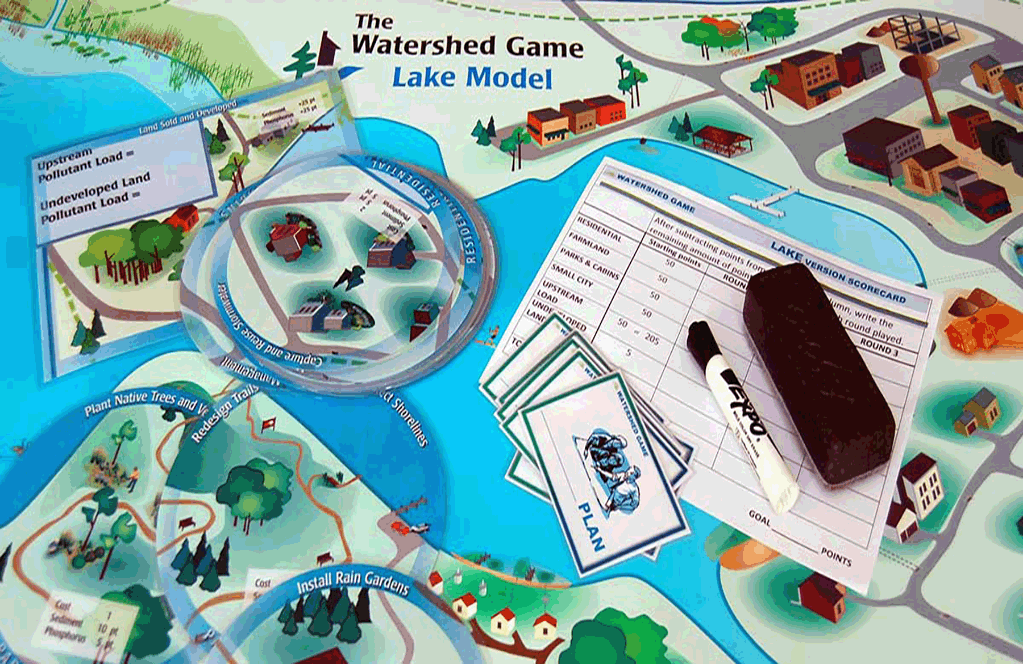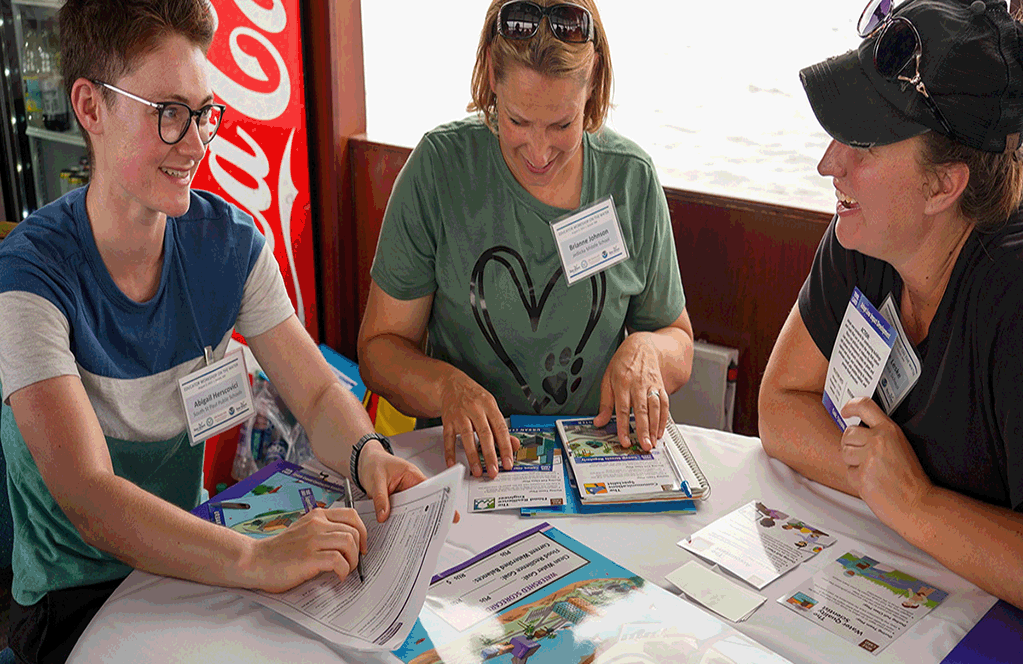Games for Cities
The Watershed Game (2021)
Minnesota
Developed by:
The object of the Watershed Game is team-building simulation is for each participant or team to use limited financial resources to reduce excess nonpoint source pollution.

Twin Cities in Minnesota to raise awareness of the importance of water conservation. The game challenges players to manage a watershed and make decisions about how to allocate water resources. Participants in the Watershed Game learn about practices, plans, and policies that improve and protect the quality of a stream, lake, river or coastal region while making management choices about land use in a fun, and low-stress environment.
The object of this team-building simulation is for each participant or team to use limited financial resources to reduce excess nonpoint source pollution (e.g., excess sediment, nitrogen and/or phosphorus) to levels that meet a clean water goal. The Watershed Game illustrates that cooperation is an essential part of managing water and land use. Participants learn to consider and involve all land uses within a watershed as they work to achieve their clean water goals.
